Introduction
Dreams about using drugs can be unsettling, particularly for individuals in recovery from substance misuse. These dreams often carry complex meanings and provide insight into the dreamer’s subconscious mind. This article delves into various interpretations of drug-related dreams and what they might signify for those on the path to sobriety.
Key Facts About Drug Dreams in Recovery
- Drug dreams often symbolize deeper psychological conflicts during recovery.
- Approximately one-third of adults in recovery report having drug-related dreams.
- Early recovery dreams frequently evoke emotions such as fear and guilt.
- Drug-refusal dreams, occurring after six months, indicate a strengthened commitment to sobriety.
- Dreams about specific drugs symbolize personal associations and anxieties tied to those substances.
- The transition of dreams from using to refusing signifies progress in the recovery journey.
- Grounding techniques post-dream can help alleviate emotional distress from drug dreams.
- Keeping a dream journal assists individuals in recognizing triggers related to substance use.
- Therapists can use dream analysis to reveal unresolved cravings and emotional conflicts.
- Dreaming of drugs often reflects a desire for healing and transformation in one’s life.
1. Drug Dreams: A Reflection of Inner Conflict
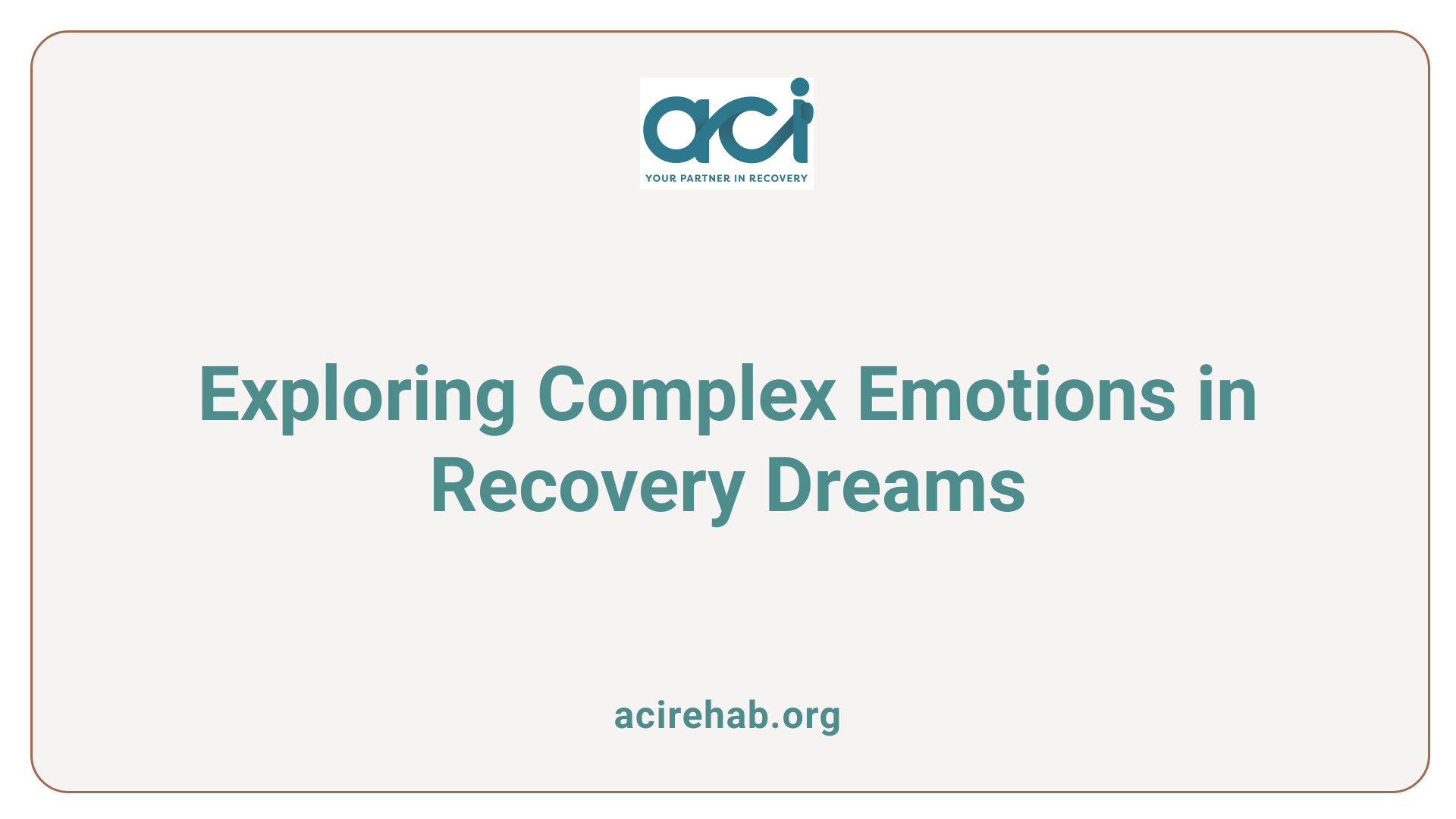
What does it mean to dream about using drugs?
Dreams about using drugs in recovery often reflect complex emotional states and unresolved issues that individuals face. During the REM sleep stage, these vivid dreams may conjure scenarios where the dreamer is using substances, which symbolize deeper psychological conflicts. For many, these dreams serve as a thermometer of cravings, revealing underlying stress, anxiety, or a desire for escapism as they navigate their recovery journey.
In early sobriety, such dreams can evoke a range of emotions, including fear, guilt, and remorse—common responses that point to the psychological toll of substance use disorders. Many individuals experience these dreams shortly after quitting drugs or alcohol, indicating that their subconscious is actively processing cravings and trauma related to past substance use. The experience of dreaming about drugs doesn’t necessarily predict relapse; instead, it provides an opportunity for self-reflection and understanding one’s inner struggles.
Over time, typically after about six months of sobriety, many individuals begin to experience drug-refusing dreams. These dreams signify a positive shift, showcasing a strengthened commitment to sobriety and hinting at progress made in the recovery process. The transformation from drug-using dreams to refusing dreams not only marks a decrease in relapse fears but also reflects the individual’s advancement toward emotional stability.
The significance of these dreams during early recovery
Early recovery is often characterized by a heightened frequency of drug-related dreams. Statistics show that approximately one-third of adults in recovery report experiencing these dreams, particularly among those with severe addiction histories. Such dreams can act as indicators of the dreamer’s psychological state, spotlighting their ongoing engagement with the recovery process.
Understanding the emotional context and symbols within these dreams can offer invaluable insights. For example, dreaming about specific drugs often relates to personal associations or anxieties tied to those substances. Through analysis, individuals can recognize triggers and coping mechanisms, aiding in their journey toward long-term sobriety. Overall, while challenging, dreaming about drug use can be a crucial part of recovery, providing pathways for introspection and emotional healing.
2. Vivid Dreams: Processing Past Trauma
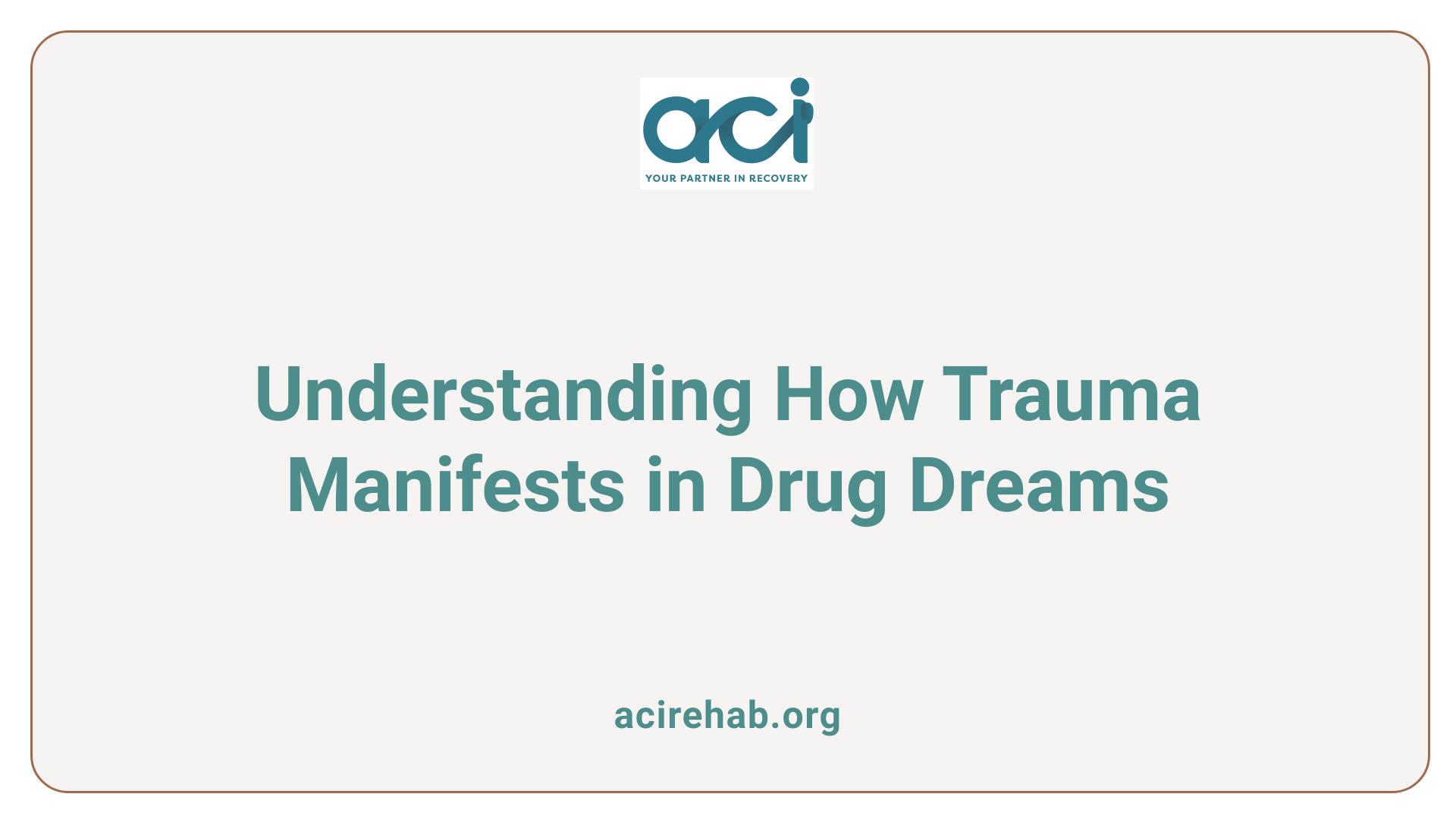
Connection of drug dreams to unresolved past traumas
Drug dreams often serve as a window into an individual’s subconscious, revealing unresolved traumas and emotional struggles tied to past substance use. These vivid experiences can bring feelings of confusion, guilt, and fear, highlighting the complexities of recovery. As individuals navigate their sobriety, dreams about drugs may manifest memories or emotions suppressed during active addiction, indicating that the mind is working through these unresolved issues.
Moreover, the frequency and intensity of these dreams can correlate with the healing journey, particularly in the early stages of sobriety. As individuals confront their past and acknowledge lingering trauma, they might experience "relapse dreams"—a manifestation of internal conflict between their desire to use substances and their commitment to recovery. Such dreams reflect a deeply rooted connection to one’s personal history and can serve as a vital tool for self-reflection and acknowledgment of emotional pain.
Symbolism and emotional insights in drug-related dreams
The symbolism within drug-related dreams is rich and multifaceted. Dreams of being high, for instance, can evoke feelings of euphoria or freedom, symbolizing a craving for escape from real-life pressures. However, they may also indicate a desire for clarity and new perspectives that surpass personal limitations. This duality suggests that these dreams can be interpreted both positively and negatively, depending on the context of the dreamer’s emotions.
Different substances portrayed in dreams carry their own meanings; for example, marijuana might symbolize the need for relaxation and stress relief, whereas harder drugs like cocaine can reflect a yearning for excitement or a manifestation of inner chaos. Analyzing these symbolic elements can illuminate the deeper psychological states and desires within the dreamer, offering insights necessary for navigating their recovery path.
In summary, drug dreams can reflect the subconscious mind’s efforts to process past traumas and residual cravings. By understanding the emotional weight and symbolism behind these dreams, individuals in recovery can better grasp their internal struggles and promote healing.
| Dream Type | Meaning | Emotional Insight |
|---|---|---|
| "Feels Great" | Desire for thrill or escape | Challenges in staying committed to sobriety |
| "Feels Awful" | Fear or guilt about past behaviors | Indicates progress in recognizing addiction |
| Mixed Emotions | Internal conflict regarding recovery | Reflection on one’s commitment to change |
Dreams can lead to a greater understanding of one’s emotions and responses, proving valuable in the recovery journey.
3. Dreams as Indicators of Progress in Recovery
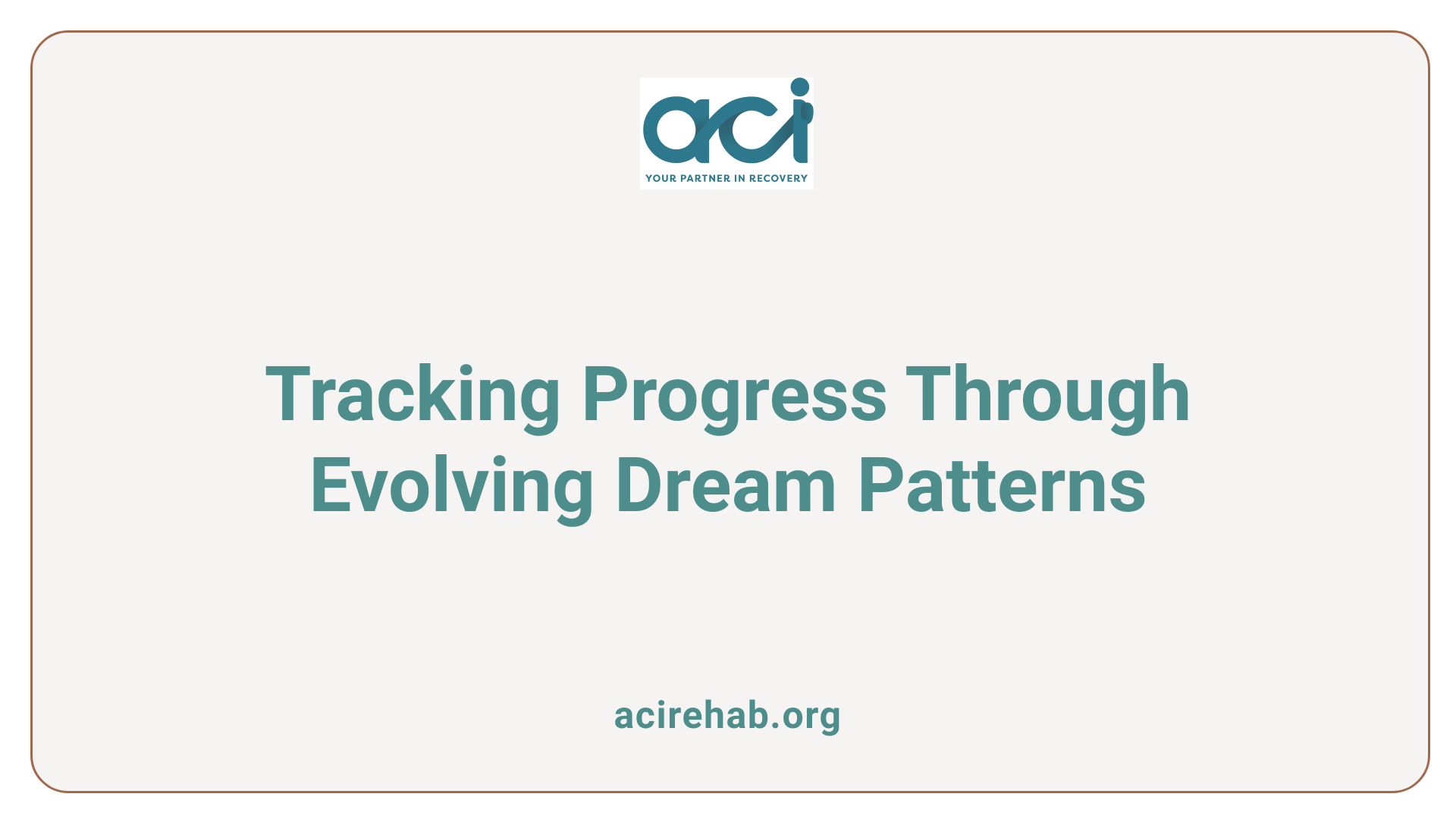
How do drug dreams evolve from early to later stages of recovery?
During the initial stages of recovery, individuals often encounter vivid drug-related dreams. Research indicates that over 85% of those sober for at least six weeks report experiencing such dreams, averaging about two each month. These dreams frequently evoke intense emotions that reflect the dreamer’s struggles with cravings and unresolved feelings tied to their past substance use. This phenomenon serves as the mind’s way of processing the adjustment to sobriety.
As individuals progress, typically around six months into recovery, there is a noticeable transition from drug-using dreams to what are termed "drug-refusal dreams." This shift indicates a strengthening commitment to sobriety and reflects a more stable emotional state. By interpreting the symbols and themes present in these dreams, individuals can gain valuable insights into their subconscious thoughts, which may highlight emotional conflicts or the remnants of cravings.
What is the significance of ‘drug-refusal’ dreams?
Drug-refusal dreams serve as a significant milestone in the recovery journey. They symbolize the dreamer’s advancements in resisting temptations and signify a growing resilience against cravings. Experts like Claudio Colace suggest that these dreams allow individuals to confront and understand their desires without acting upon them, turning a potentially distressing experience into a profound opportunity for self-reflection and personal growth.
In contrast, early drug dreams often indicate unresolved issues or vulnerabilities related to substance use. This evolution from engaging with substances in dreams to turning them down showcases the adaptability and progress made throughout the recovery process. Recognizing the difference between drug-using and drug-refusal dreams can empower individuals, reducing feelings of guilt and promoting a more profound awareness of their psychological landscape, ultimately leading to better coping strategies in the journey to sobriety.
Additional Insight
| Stage of Recovery | Type of Dream | Emotional Response | Significance |
|---|---|---|---|
| Early Recovery | Drug-Using Dreams | Guilt, Fear, Remorse | Indicates unresolved cravings |
| After Six Months Recovery | Drug-Refusing Dreams | Confidence, Empowerment | Signals progress and commitment |
These evolving dream patterns serve as a vital tool for individuals in recovery, reflecting their internal struggles and progress.
4. Decoding Personal Symbols in Drug Dreams
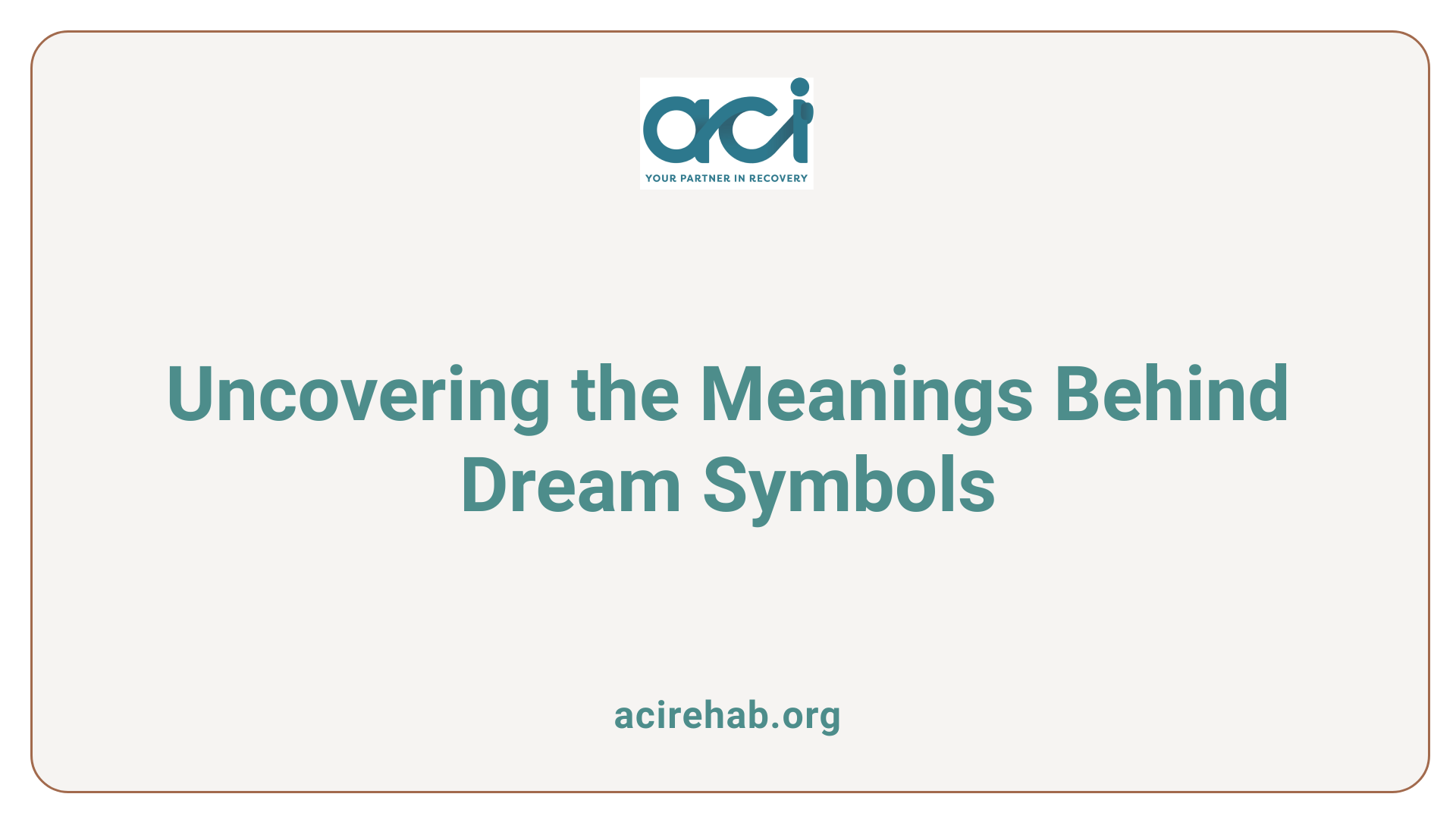
The role of specific drug symbols and their meanings
Dreams often feature substances that symbolize more than their literal presence. For instance, dreaming of marijuana may suggest a yearning for relaxation or escapism, while cocaine might indicate a desire for excitement or stimulation. Heroin dreams could reflect deeper emotional attachments, such as an unfulfilled relationship or dependency. Conversely, alcohol-related dreams might signify issues relating to control and social anxieties.
Understanding personal associations in dream interpretation
Each individual has unique associations with various drugs based on personal experiences and emotional states. A dream involving drug use can tap into complex feelings like social embarrassment or a need for validation, evoking memories of past behaviors or choices. By analyzing these personal symbolisms, individuals can gain insights into their subconscious desires and fears, allowing for a better understanding of their recovery journey.
| Symbol | Possible Meaning | Emotional Association |
|---|---|---|
| Marijuana | Desire for relaxation or escape | Calmness, Anxiety |
| Cocaine | Craving excitement or validation | Euphoria, Pressure |
| Heroin | Unfulfilled relationships or emotional dependency | Attachment, Longing |
| Alcohol | Lack of control or social pressure | Guilt, Remorse |
| Cigarettes | Complex feelings about attachment | Comfort, Conflict |
These dream symbols signify not just the individuals’ struggles with substance use but also provide critical reflections of their emotional health and readiness for change. Recognizing these patterns can guide individuals in addressing unresolved feelings and deepening their coping strategies throughout their recovery.
5. Coping Strategies for Managing Drug Dreams
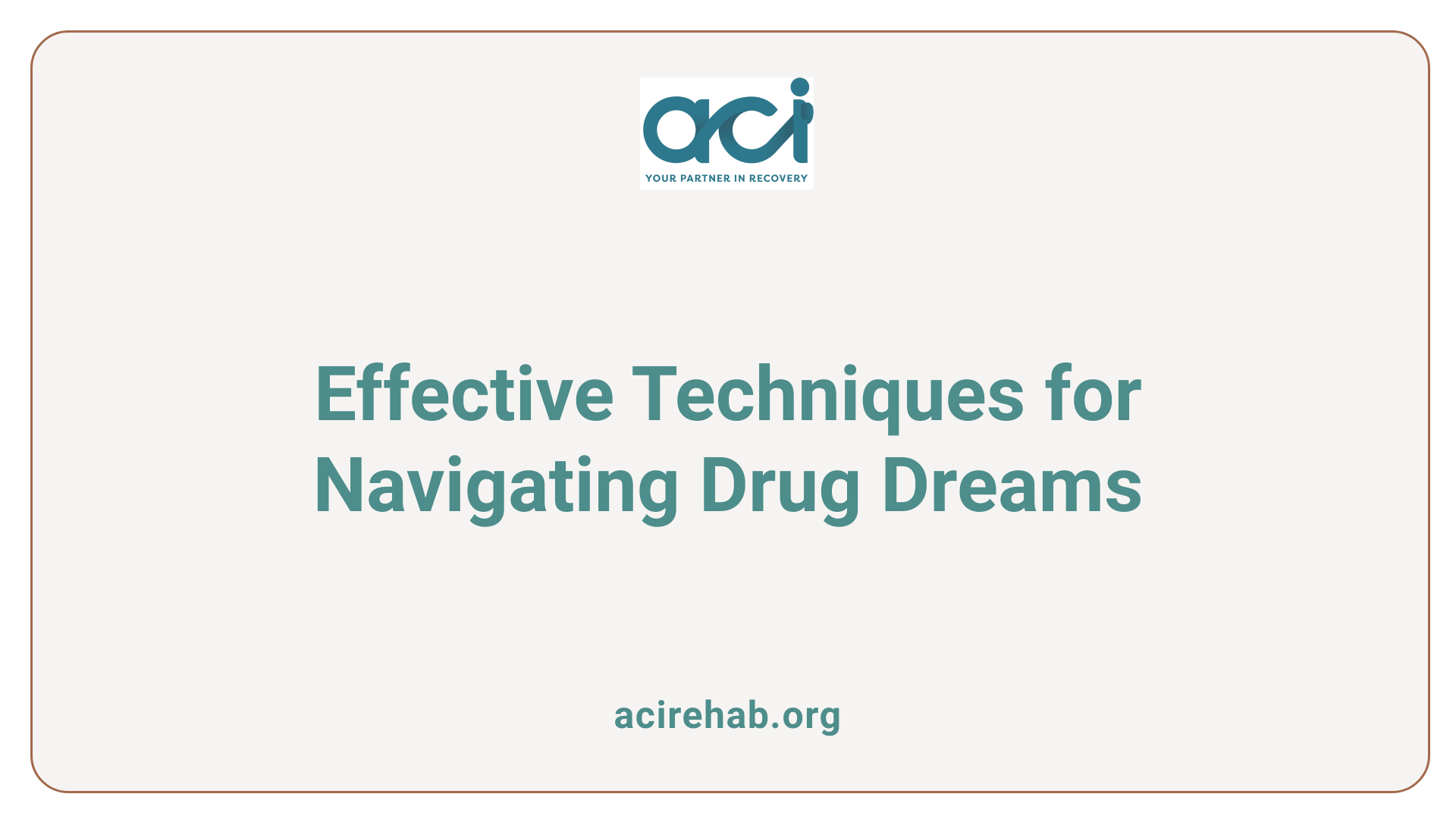
Methods to Cope with Drug-Related Dreams
Dealing with drug-related dreams can be challenging for those in recovery. Various coping strategies can help mitigate the emotional distress these dreams may cause:
- Acknowledge Their Significance: Recognizing that drug dreams are common can lessen feelings of isolation and fear. Accepting these dreams as part of the recovery journey is vital.
- Practice Grounding Techniques: Techniques such as mindfulness or deep breathing can help stabilize emotions immediately after experiencing distressing dreams, bringing one back to the present moment.
- Engage in Self-Care: Regular self-care practices, including exercise, meditation, and ensuring adequate sleep, can aid in reducing stress and anxiety that contribute to intense dreaming.
- Seek Professional Support: Connecting with therapists or support groups allows individuals to share and process these experiences, providing a safe space to explore underlying issues and emotions.
- Dream Journals: Keeping a journal of dreams can facilitate personal reflection, helping individuals identify triggers or emotional patterns related to their substance use history.
The Role of Dream Analysis and Professional Support
Dream analysis can be particularly insightful. Understanding the emotional responses and symbols present in drug dreams can offer clarity regarding unresolved conflicts and cravings. Therapists trained in addiction psychology can assist in interpreting these dreams, revealing desires for escapism or repressed feelings that need to be addressed.
Professional support fosters a sense of community and belonging, essential for individuals navigating the complexities of recovery. Engaging in discussions about dream content can diminish feelings of shame and guilt associated with recovery-related dreams, reinforcing resilience and commitment to sobriety.
Spiritual Meaning of Taking Medicine or Using Drugs in a Dream: Often, dreaming about using drugs or taking medication symbolizes a search for healing and restoration. This reflects an emotional or spiritual state in need of nurturing. Such visions invite introspection, indicating an individual’s desire to mend broken relationships or heal past wrongs, encouraging proactive steps toward personal transformation.
Through these coping strategies, individuals can transform the emotional weight of drug dreams into opportunities for growth and self-discovery.
Conclusion
Understanding the meanings behind drug-related dreams can offer valuable insights into one’s journey of recovery. These dreams, while often challenging, provide opportunities for self-reflection and growth. By recognizing their significance and employing effective coping strategies, individuals can navigate their recovery with greater resilience and clarity, turning dreams into a powerful tool for healing and transformation.
References
- What Do Dreams About Drugs Mean? – Conifer Park
- What Do Drug-Related Dreams Mean? – Harris House
- What Do Dreams About Drugs Mean? – Northstar Behavioral Health
- Drug-Related Dreams | The Recovery Village Ridgefield
- Drug Dream Meaning – Emerald Isle Health & Recovery (AZ)
- Does Dreaming About Past Drug Use Mean You Are Heading for …
- Why You Have Drug Dreams Once You’re Sober
- Drug dreams: a neuropsychoanalytic hypothesis – PubMed
- I Dreamed About Using Drugs – What Does That Mean?
- What Do Dreams About Drugs Mean? | Samba Recovery

